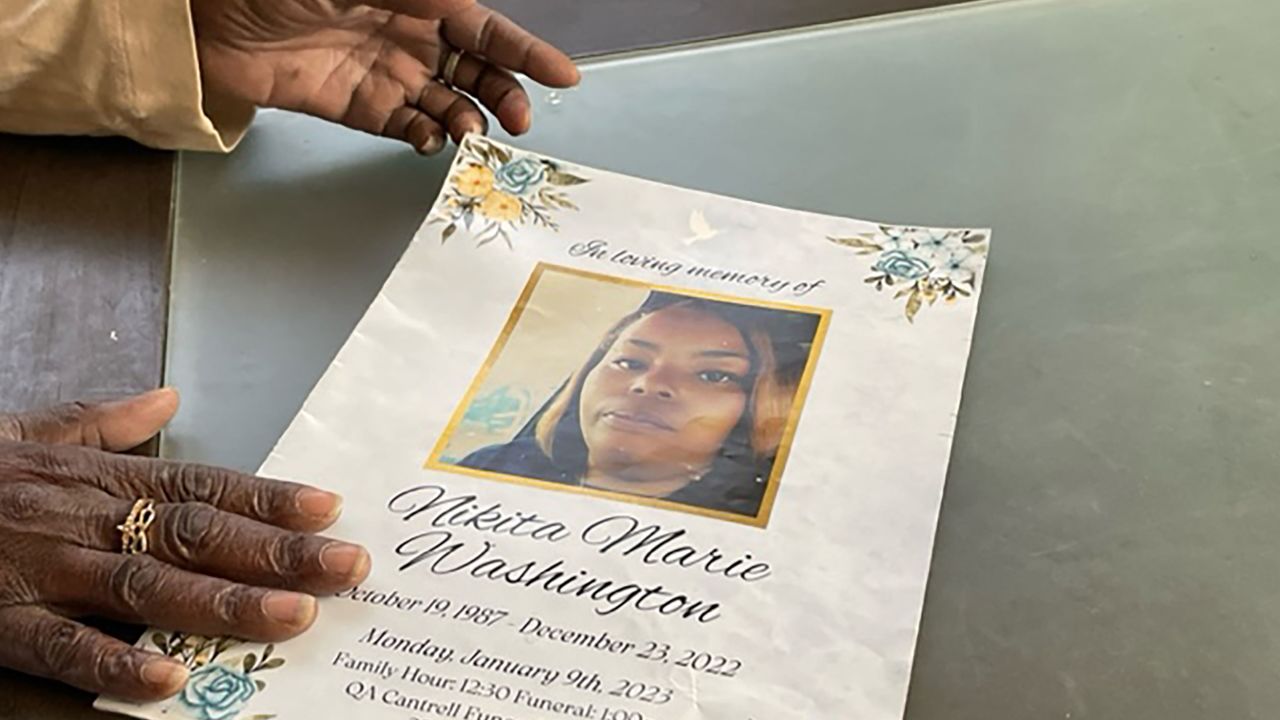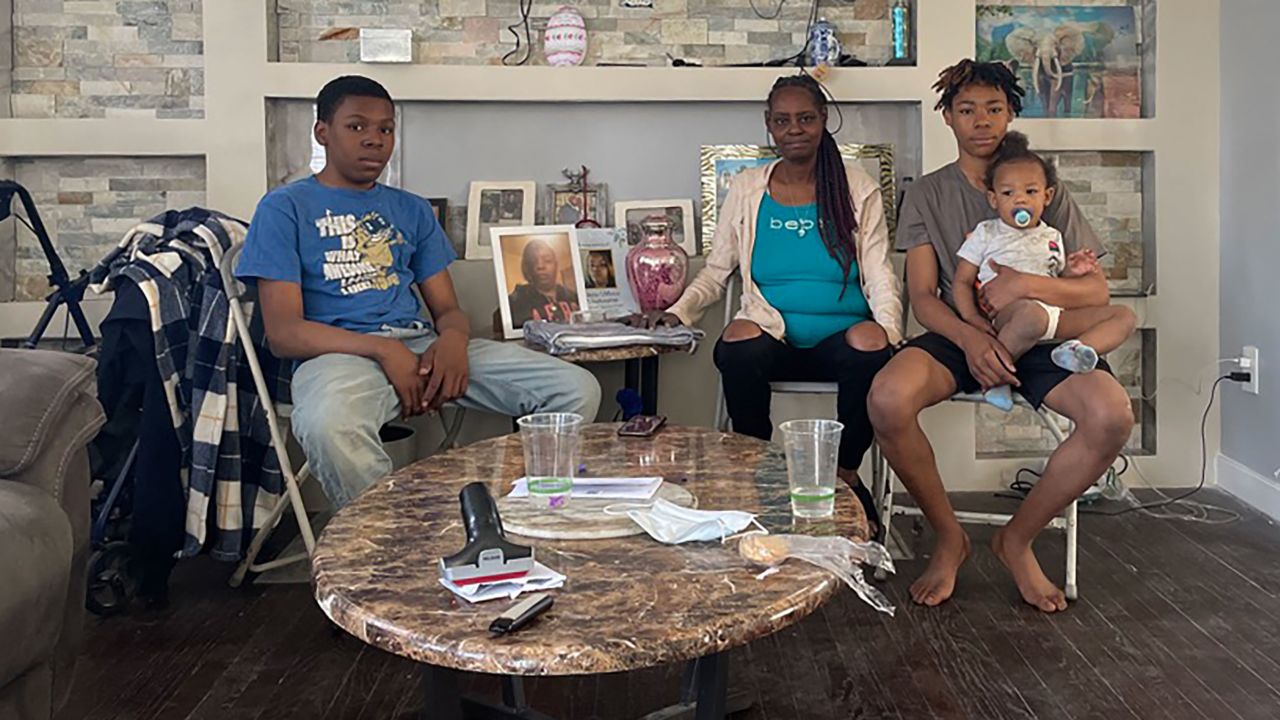Patricia Pouncey feels numb whenever she thinks about her daughter Nikita Washington’s tragic death last December.
Washington, a Black mother from Detroit, died at Harper University Hospital one day after giving birth via cesarean section to her 12th child, a boy named Nathaniel.
Pouncey, who is now raising Nathaniel and her daughter’s 11 other children, says the pain of her loss has been made worse by confusion about what led to her death.
“I just have a lot of questions right now,” Pouncey said. “I ask myself all the time, ‘What went wrong?’”

Pouncey says her daughter went to the hospital alone to give birth because her husband is incarcerated, and she had to stay home caring for her other grandchildren.
Pouncey now regrets not accompanying her daughter to the hospital, she says.
Washington was treated for high blood pressure at the hospital, she told her family, and went in for a cesarean section the night of December 22. After several hours went by with no news, Washington’s sister went to the hospital to check on her, Pouncey said.
The following morning, the family learned that the baby was born healthy. However, while doctors were treating Washington for a loose stitch and excessive bleeding, she passed away, Pouncey said.
A death certificate from the Wayne County Clerk reviewed by CNN indicates that Washington, 35, died from “postpartum hemorrhage” and “complications from multiple cesarean sections.”
But Pouncey says she wonders if the doctors did everything to save her daughter.
“I haven’t talked to anyone from the hospital. I have not received anything from them. All I have is the death certificate,” Pouncey said.
A spokesman for Detroit Medical Center, which operates Harper University Hospital, released a statement to CNN saying it could not comment on Washington’s death.
“Our thoughts and prayers go out to the family for the loss of their loved one,” the statement said. “We cannot discuss specifics regarding the treatment of any individual due to patient privacy laws.”
Black Maternal Health Week
The nation’s maternal death rate rose significantly in 2021, with Black women dying at a rate 2.6 times higher than White women, according to the most recent data from the National Center for Health Statistics.
As part of Black Maternal Health Week (April 11-17), events are being held across the nation to raise awareness of this issue, including a five-city tour sponsored by Irth, a social change app that provides reviews from Black and brown women of doctors and hospitals that offer prenatal, birthing, postpartum and pediatric care. Also this week, Baby Dove launched a new Black Doula Directory to connect expecting moms with Black doulas. Doulas are trained professionals who provide an extra layer of support and advocacy for women during pregnancy.
Pouncey is urging family members of pregnant, and birthing women to help advocate for their loved ones, ask questions, and demand that doctors and nurses break down medical terminology.
“I’m worried about every mother,” Pouncey says. “Don’t ever, ever make the mistake that I made, letting your child go (to the hospital) alone. We need to give more attention to what’s going on.”

Pouncey is leaning on her faith to move forward and raise Washington’s children, ages three months to 19, she said. And she’s thankful for the donations that helped the family buy a bigger home and a reliable vehicle.
She wants her daughter to be remembered as a sweet, giving person who enjoyed doing hair, music, and being with family.
“God’s got us,” Pouncey said.
Health - Latest - Google News
April 16, 2023 at 05:15PM
https://ift.tt/zv7xL80
A Detroit grandmother is left to raise 12 children after daughter dies during childbirth - CNN
Health - Latest - Google News
https://ift.tt/g6c5l0Y


No comments:
Post a Comment